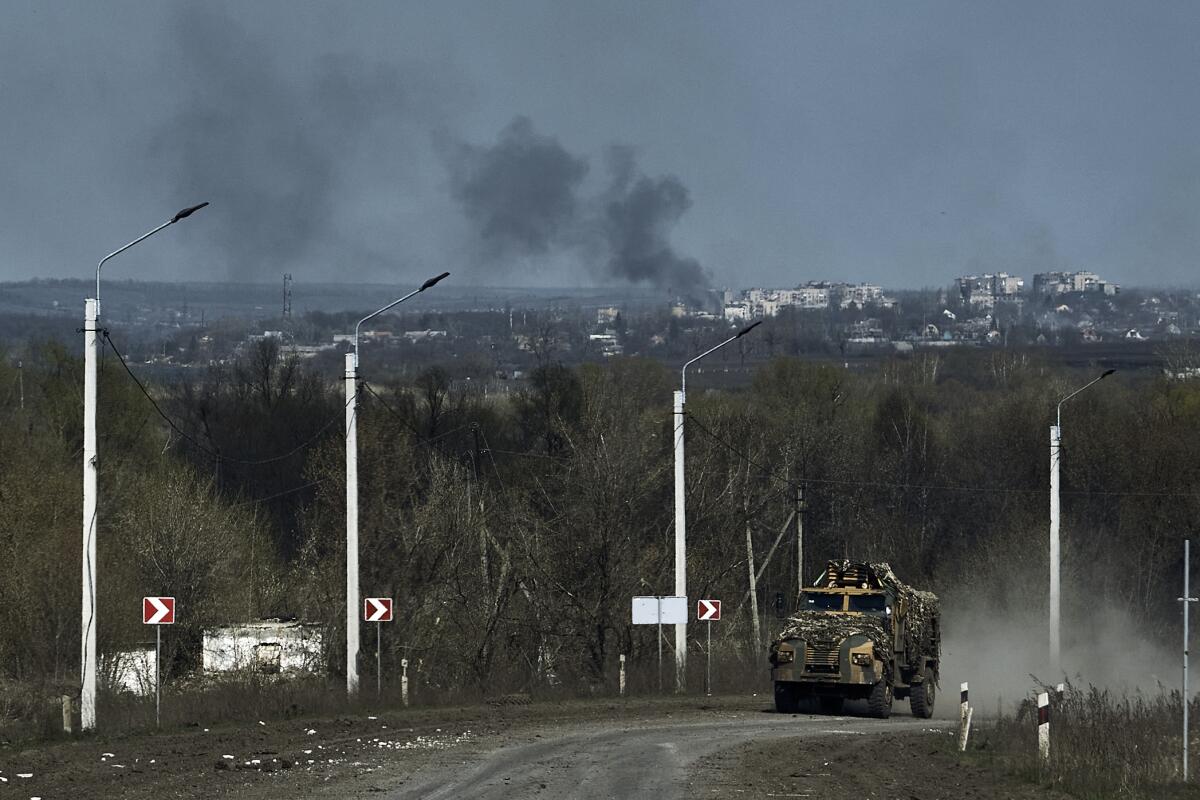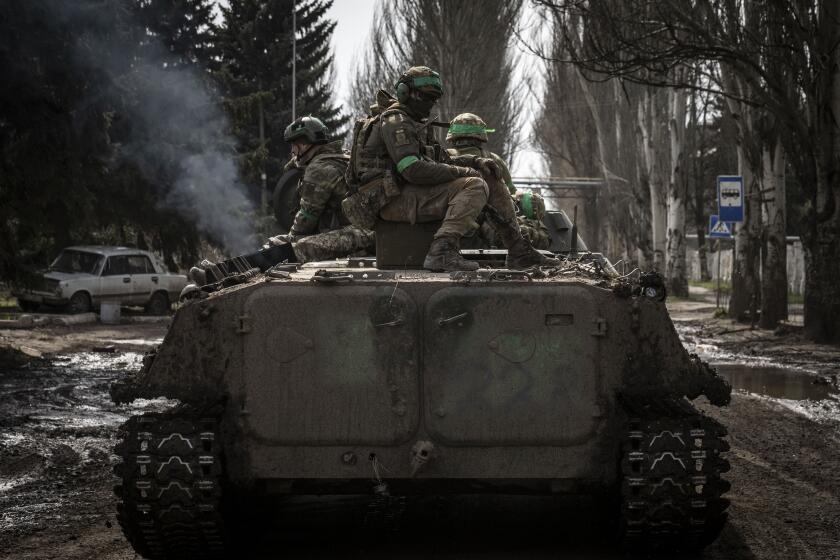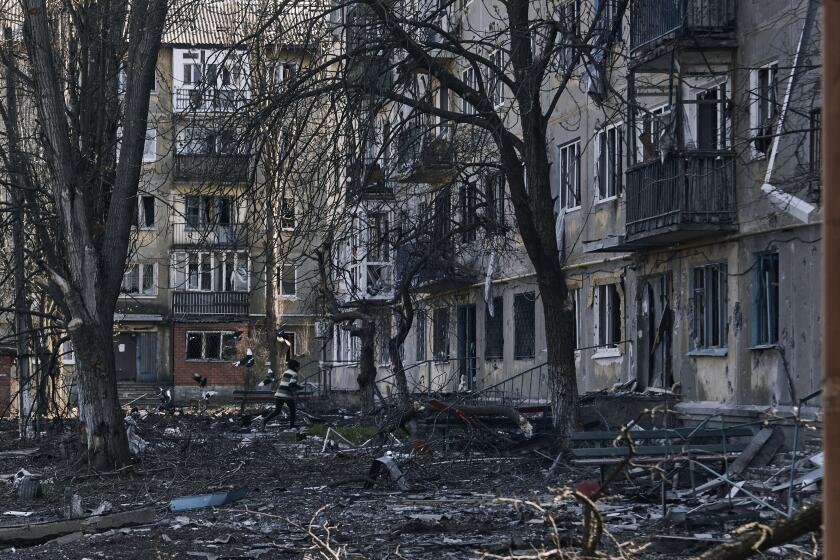Leaked documents on war in Ukraine post a ‘very serious’ risk, Pentagon says

- Share via
WASHINGTON — The online leaks of scores of highly classified documents about the war in Ukraine present a “very serious” risk to national security, and senior leaders are quickly taking steps to mitigate the damage, a top Pentagon spokesman said Monday. And as the public airing of the data sends shock waves across the U.S. government, the White House said there are concerns there could be additional leaks.
Chris Meagher, assistant to the secretary of Defense for public affairs, told reporters that Defense Secretary Lloyd J. Austin III first became aware Thursday that a number of classified briefing slides detailing the U.S. military efforts in the war and intelligence involving other nations were leaked.
In the days since, Austin has reached out to allies, held daily meetings to assess the damage and set up a group not only to assess the scope of the information lost but review who has access to those briefings. The department is looking closely at “how this type of information is distributed and to whom,” Meagher said, but he would not say whether steps had been taken to tighten control over who can access it.
At the White House, National Security Council spokesman John F. Kirby was asked whether the United States was bracing for more online releases.
As anticipation builds for a counteroffensive, Ukrainian forces are desperate to lay their hands on Western tanks that could help turn the war’s tide.
“The truth and the honest answer to your question is: We don’t know,” he said. “And is that a matter of concern to us? You’re darn right it is.”
Kirby said at this point, “we don’t know who’s behind this, we don’t know what the motive is.”
And he said as U.S. authorities go through the documents that were posted online, they are still trying to determine their validity, but they have found that at least some of the papers “have been doctored.”
He and others would not go into detail, but at least one of the documents shows estimates of Russian troop deaths in the Ukraine war that are significantly lower than numbers publicly stated by U.S. officials. One document lists 16,000 to 17,500 Russian casualties and up to 71,000 Ukrainian casualties. Gen. Mark A. Milley, chairman of the Joint Chiefs of Staff, said publicly in November that Russia had lost “well over” 100,000 soldiers and Ukraine had lost about that many. And those estimates have continued to climb since, although officials have stopped providing more exact numbers.
At the State Department, spokesman Vedant Patel told reporters Monday that U.S. officials “are engaging with allies and partners at high levels over this, including to reassure them of our commitment to safeguarding intelligence and the fidelity of securing our partnerships.”
Russian and Ukrainian soldiers have gone home in a prisoner swap. Russia said 106 of its soldiers were released. Ukraine said Russia freed 100 Ukrainian prisoners.
The U.S. officials declined to provide any specifics, including about the expanse of the release, how it happened and to which foreign leaders the United States has spoken. Patel added that there is “no question” the documents’ release presents a risk to national security.
Investigators who specialize in tracking social media, including at the journalism organization Bellingcat, say the documents might have been circulating for months in private internet chats on the Discord discussion platform. Asked whether the Pentagon had contacted Discord, Meagher referred questions to the Justice Department, which has opened a criminal investigation into the leaks.
The slides, which eventually were distributed on more mainstream sites such as Twitter, detail U.S. training and equipment schedules to support Ukraine, assessments of losses, what the United States is monitoring among key allies and strategic partners, and what moves Russia might be taking to undermine those relationships.
While the Pentagon has been careful not to authenticate the information contained in any specific document, overall the leaked data “present a very serious risk to national security and have the potential to spread disinformation,” said Meagher. “We’re being very careful and watching where this is being posted and amplified.”
The documents are labeled “secret” and “top secret” and in some cases resemble routine updates that the U.S. military’s Joint Staff would produce daily but not distribute publicly.
Associated Press writers Nomaan Merchant, Matthew Lee and Zeke Miller contributed to this report.
More to Read
Sign up for Essential California
The most important California stories and recommendations in your inbox every morning.
You may occasionally receive promotional content from the Los Angeles Times.












